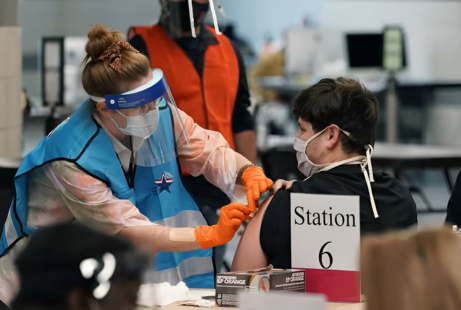Artificial Intelligence (AI) is revolutionizing healthcare by enhancing diagnostic accuracy, personalizing treatment, and streamlining administrative tasks. AI systems can analyze vast amounts of medical data quickly, assisting doctors in identifying diseases and predicting patient outcomes more efficiently. This technology also plays a crucial role in drug development and managing patient records, improving overall healthcare delivery. Generative AI, a specialized subset of AI, creates new data or content based on patterns learned from existing data. Unlike traditional AI, which focuses on analyzing and interpreting data, generative AI can produce original content, such as synthetic medical images or new drug compounds. Its significance in healthcare is profound; it can generate high-quality medical images for training and diagnosis, accelerate drug discovery by designing novel compounds, and even create personalized treatment plans. By simulating complex biological processes and generating realistic models, generative AI helps researchers and clinicians explore new possibilities and improve patient outcomes. At Lifekare Medical Equipment Trading LLC, we are dedicated to providing top-quality medical equipment to support these innovations and enhance patient care.

What is Generative AI?
Generative AI is a type of artificial intelligence that creates new content, such as images, text, or even medical data, by learning from existing information. Unlike other AI, which often focuses on analyzing or classifying data, generative AI uses patterns in the data to produce something new. For example, it can generate realistic images from descriptions or create new drug compounds by learning from existing ones. This ability to create rather than just analyze or categorize makes generative AI unique and powerful for applications in various fields, including healthcare.
Applications of Generative AI in Healthcare
1. Medical Imaging:
It improves the quality of medical images, helping doctors make more accurate diagnoses. It can also create practice images for training doctors without using real patient data.
2. Drug Discovery:
Generative AI speeds up finding new medicines by studying data and predicting which drugs might work. It can also design new drug compounds, helping develop new treatments faster.
3. Personalized Medicine:
This AI customizes treatments based on each patient’s unique health information. It can also predict how patients will react to different treatments, helping doctors choose the best options.
4. Virtual Health Assistants:
Generative AI gives personalized health advice and helps during patient consultations by providing useful information and answering questions.
Benefits of Generative AI in Healthcare
- Improved Diagnostic Accuracy: Generative AI increases the quality of medical images and helps in detecting abnormalities more accurately, leading to better diagnoses.
- Faster Drug Discovery: By simulating and designing new compounds, generative AI speeds up the drug development process, potentially bringing new treatments to market more quickly.
- Personalized Medicine: It allows for tailored treatment plans based on individual patient data, optimizing therapy effectiveness and reducing adverse effects.
- Efficient Training: AI-generated synthetic data helps train medical professionals and AI systems, improving their performance without relying solely on real patient data.
- Cost Savings: By simplifying research and development processes, generative AI can reduce costs associated with drug discovery and medical research.
- Improved Patient Care: AI-driven tools provide personalized health recommendations and support, enhancing overall patient care and treatment outcomes.
Challenges and Considerations
- Data Privacy and Security: Ensuring the protection of sensitive patient information is critical, as generative AI systems require access to large amounts of data.
- Ethical Implications: Addressing potential biases in AI models and ensuring they are used ethically in patient care is essential to avoid unfair treatment outcomes.
- Integration with Existing Systems: Incorporating generative AI into current healthcare infrastructures can be complex and may require significant changes or upgrades to existing technologies.
- Regulatory Compliance: Meeting regulatory standards and guidelines for the use of AI in healthcare is crucial to ensure safety and effectiveness.
- Transparency and Accountability: Ensuring that AI systems are transparent and that their decision-making processes can be understood and scrutinized is important for maintaining trust in healthcare applications.
- Training and Adaptation: Healthcare professionals need proper training to effectively use and interpret AI-generated insights, which can require time and resources.
Conclusion
Generative AI has great potential to change healthcare for the better. It helps make medical images clearer, speeds up the creation of new medicines, and personalizes treatments for each patient. It also powers virtual assistants that provide health advice and support. While there are challenges like keeping data safe and dealing with ethical issues, the benefits are huge. Generative AI can improve diagnoses, save costs, and enhance patient care. At Lifekare Medical Equipment Trading LLC, we are selling medical equipment that can work alongside these advanced AI technologies to improve healthcare even further.
